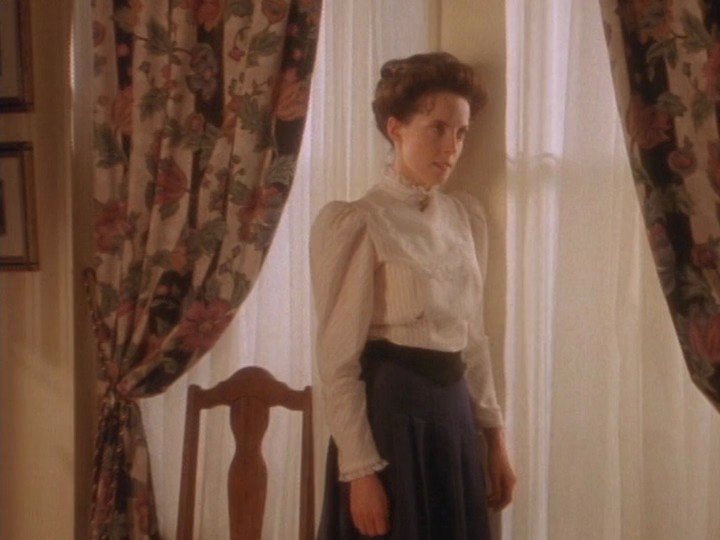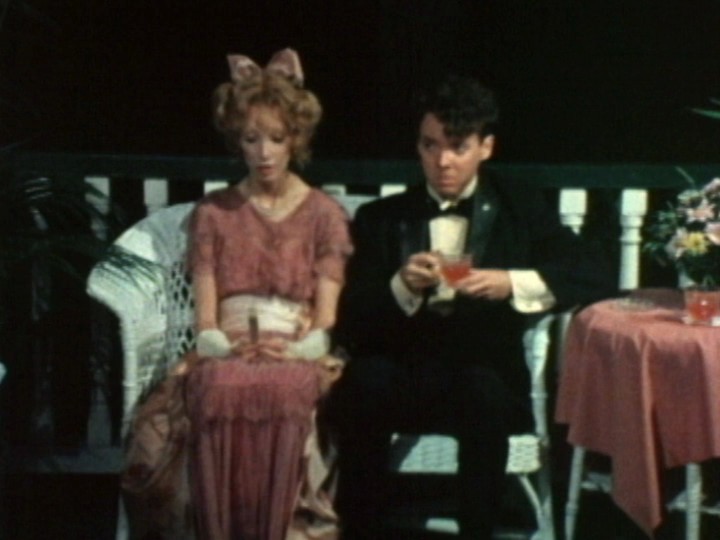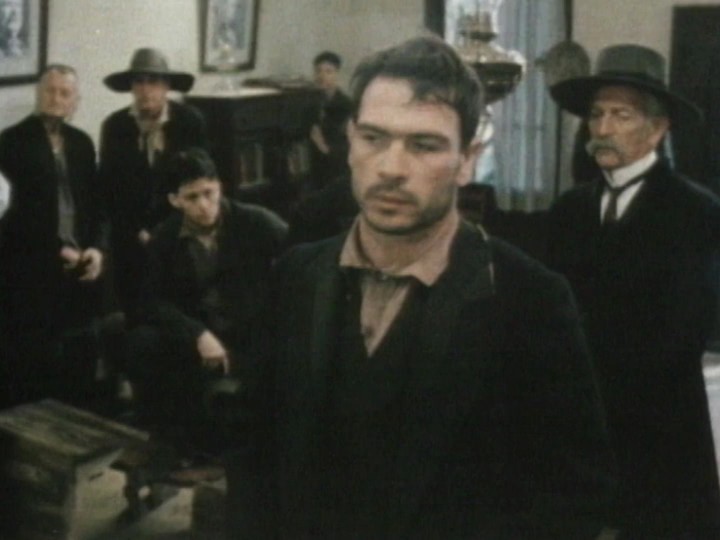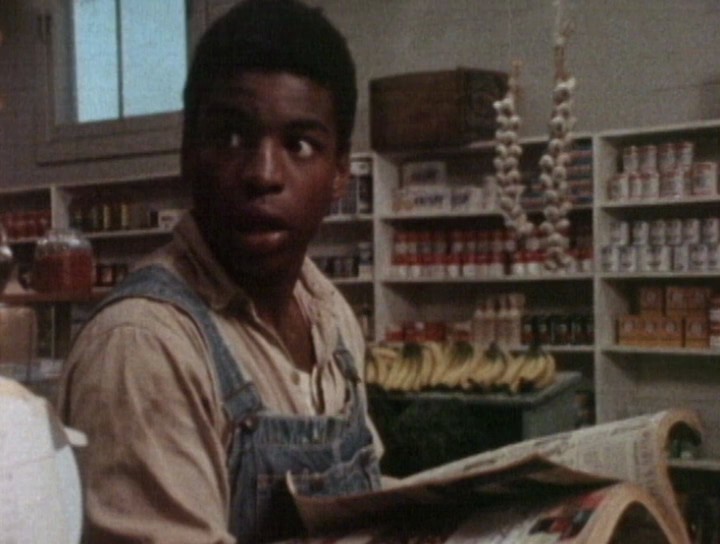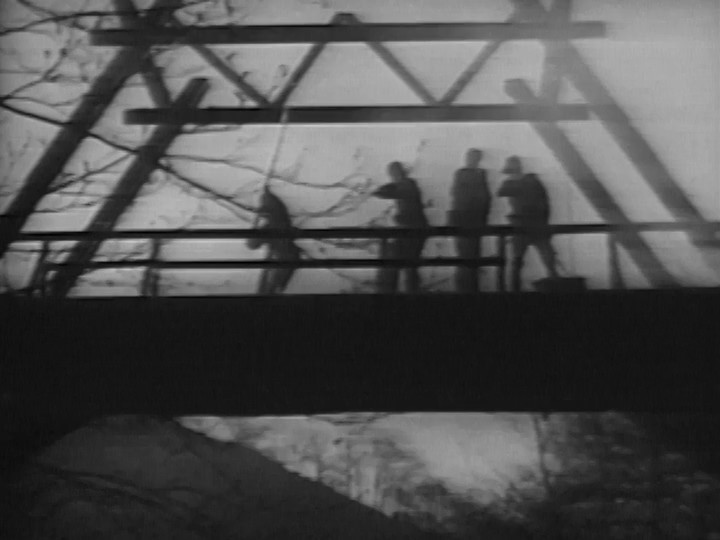Literary critic Harold Bloom has taken a lot of blame over the years but I give him credit. On one fated day in seventh grade I learned about Bloom, O. Henry and irony at once. It was quite a day—not that I liked it, I just can’t forget it—a sentiment I also reserve for most short stories. The form’s had its geniuses (Flannery O’Connor), but all too often, short stories can feel like exercises. They refuse to conform to the conventions of your bookshelf; they defy…something. This is the iffy bit: by reputation they defy conventions but if those defiant acts were a bigger deal (or less predictable) you and I would be having more coffee talks about them. Especially in this era that devalues the magazine, we have increasingly little reason to read short stories. The deck is stacked against making a splash there, in part because shorts are sandwiched uncomfortably inside rare literary journals or Xeroxed at college alongside syllabi you’re about to lose.
Short films have similar chips on their shoulders; and while no grand (or tiny) treatise has been written about the proper etiquette of adapting short stories to film, there is a loyalty of spirit to making a short about a short. Naturally, the basic criticisms that apply to one apply to the other, but if short stories intend to deliver the purest, most loaded baroque moments, shouldn’t their adaptations do the same? No padding, no gristle, just (presumably) lean meat.
The Gift of the Magi
Magazine-styled short story writers of the early 20th century often had a schtick. Upton Sinclair exposed the grotesquery of meatpacking, Horatio Alger invented capitalist heroes and O. Henry cornered the market on irony. “The Gift of the Magi” is his most famous story, indeed one of the most famous short stories written in English (up there with Shirley Jackson’s “The Lottery” and Hemingway’s “Hills Like White Elephants”—both middle-school staples). His generic but loving couple suffers a Christmas without money and give of themselves such that they can’t receive what their loved one offers them. Certainly the writer never expected his plotline to be repurposed by bunko self-help gurus in the nineties, but “Magi’s” ending is both punch line and paradox—and since the language is simple it’s good for tweens. This adaptation struggles with cinematic limitations—it can’t do what a short story can so it ventures into lengthy internal monologues and photo album recollections of romantic times passed. It’s just the stuff that smelled like “Art” when you were thirteen—because so much does when you’re that age.
Bernice Bobs Her Hair
Predating the Cosmo “How to Be” articles, this piece of prescriptive womanhood begins in the opulent upper classes, where cousins Bernice (Shelley DuVall) and Marjorie (Veronica Cartwright) are spending a summer together. Marjorie is “lassoing” reluctant men to dance with Bernice who hears she’s boring the boys and solicits assistance from her cousin, the co-ed diva. Cartwright is perfectly pitched as the girl who plays the game like a pro—notice the breathtaking delivery of her lament “and we have as much fun as anybody.” Casting Bud Cort as the town’s big catch is its own bit of Hollywood anthropology and DuVall as the dutifully-dull good girl (“But if you’re a nice girl from a good family…?”) are all perfect people to embody the seventies-era adoration for the twenties, in particular the affection for F. Scott Fitzgerald. If you ever wondered if Zelda wrote for her husband, “Bernice Bobs Her Hair” could be your brightest bit of evidence, because the incisive (if cynical) description of ladies and their games is stunningly sharp. “You mean Mona Lisa’s teeth were crooked?” Bernice asks, to which Marjorie knowingly responds: “Of course.”
Barn Burning
Today, Tommy Lee Jones is loved for his salty humor (he’s a hoot in Lincoln), but before he could trade in on his old man antics, he played broken soldiers (Rolling Thunder), romantic threats (Eliza’s Horoscope) and almost sympathetic prison guards (Jackson County). Jones was built to play scary men you wish were nicer, and his Ab Snopes is just that. William Faulkner loved his evil men and the father of this homestead forces his family to move from town to town because he resents the hell out of authority—which means he’ll never be OK having a landlord and will never afford not to. Loyalty is the glue that holds family together—blood matters but the boy Ab shares the most with holds onto his kin because he knows it’s right—if only Ab showed as much wisdom as his put-upon children. It’s a tautly built, oppressively staged period piece, and even at thirty-nine minutes you’re gasping for fresh air, but the necessity of this suffering, the way it suggests something about masculinity and the position of Americans during the depression, plays out like an ideal of short forms. Like a great chess game or good choreography—every movement is a necessity you can’t recover from.
Almos’ a Man
Years before PBS’ Reading Rainbow LeVar Burton demonstrated his affection for the written word starring in Almos’ a Man. Playing the son of a southern sharecroppers in the depression-era, Dave (Burton) is sixteen and crawling out of his skin to be free of so many masters: his boss makes demands, his coworkers correct his plowing (he’s a lazy teenager) and his parents castigate. At a loss for a venue to rebel in, David fantasizes about owning a gun, and when he gets it he’s so enamored and fearful he naturally wreaks accidental havoc. He’s working years after abolition but he’s still under the thumb of white landowners. Based on a short story by Robert Wright, Almos a Man feels as much like a tale of adolescence as a statement about being a black writer on a black list. In so many ways it says, “Yeah, I know I’m not wanted, but look I’m still here.” Wright’s most famous for his novel Native Son, his semi-biography Black Boy and his friendship with Langston Hughes, but his acrimonious affiliation with communist groups in the thirties led to his location on the Hollywood Ten, a McCarthy era collection of (mostly minority) writers who knew when their names were called they’d never work in this town again. Yet, blacklisting was not new for Wright, a man who’d been kicked out of organizations built for and by black intellectuals, people seemed to like making their groups more exclusive by ejecting him. Like his character Dave, he’d find freedom in running from the shackles before they reached his wrists. There’s a moment before fate grips you when you can still choose. Somehow caught between a bourgeois intellectual and a poor black man, the middle is its own brand of confinement.
The Man and the Snake
The Return
An Occurrence at Owl Creek Bridge
Ambrose Bierce has a reputation as a cross genre writer, a “fabulist” and “satirist.” At the risk of sounding silly, when it comes to Bierce I have trouble seeing the difference between the two. This is the man who wrote The Devil’s Dictionary; Bierce is upstanding but he’s bitter about it. During the period “Bitter” Bierce spent in San Francisco he developed a small legacy of writings and reportings that would be later collected as “true crime,” but I conjecture (because his stories inspire such fanciful psychologizing) that he sensed some internal conflict about reporting on real world outrages. Stories like “The Return” and “The Man and the Snake” both revolve around end-life tragedies that can only happen offscreen. The nature of these events simply can’t be mapped for history. Is this reverence or cynicism? Should we dismiss these stories’ detrimental events as “imaginary” despite the very real consequences, or should we be happily irked to learn of events that simply can’t be revealed to others? Is it better some moments can never be shared? Perhaps intimacy is the key to understanding and intimacy is a thing crime reporters are loath to have with those on whom they report—but this is fiction and the rotation of these TV shorts in schools had effects on filmmakers perfectly familiar to you. See The Return and remember The Sixth Sense, find Indiana Jones in The Man and the Snake, and separately, see Bierce’s famous Civil War story Occurrence at Owl Creek Bridge all over Donny Darko.
Farewell, Babylon!
The nineties zeitgeist of “backyard filmmaking” is one I’ve often criticized, not because it doesn’t have a lot to offer but because the films—especially those by New York filmmakers like Spike Lee (who you’ll see here playing a cinephile)—were often critical of their home town. Never has that criticism seemed so pointed and necessary than in this adaptation of the Kattan novel about coming of age as a Jew in Iraq (aka Babylon). Both a long short (clocking fifty-four minutes) and an adaptation of a novel, this selection somewhat defies the categories I’ve created for this list, but you’ll be hard pressed to find a film that more defiantly tries to get around all the rules to reach the spirit of its source material. As if using Nouvelle Vague tendencies (comical film grammar, french language, subtitles) to signal a coming of age, Farewell, Babylon! follows a too-hip would-be co-ed through New York doing everything (in more romantic lighting) that signals rebellion. She sleeps on the street to enact her freedom. She kills a philosopher to banish class hypocrisy. She listens to a sculptor who speaks english and might be wooing her with a kazoo—at least I think that was a kazoo—everything here is a symbol. The sixth and last film directed by Jodorowsky‘s spiritual brother Fernando Arrabal, Farewell, Babylon! wants less to explain the real world conflict that birthed the novel by Naim Kattan (a matter of great importance to the writer), instead seeing the point as a matter of defiance, a product of protracted conflict and a measure of urgency that can only be digested in short doses.


